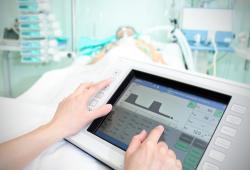It’s every CIO’s worst nightmare: a laptop computer with patient health information goes missing or is stolen. Not only does this breach jeopardize your patients’ privacy, it almost always means costly penalties for your organization.
Now, thanks to advancements in anti-theft technology, many CIOs have enabled laptops to protect themselves in these types of situations. The latest anti-theft technology triggers an automatic remote lockdown scenario, or “poison-pill,” to keep patient data safe and secure.
It’s every CIO’s worst nightmare: a laptop computer with patient health information goes missing or is stolen. Not only does this breach jeopardize your patients’ privacy, it almost always means costly penalties for your organization.
Now, thanks to advancements in anti-theft technology, many CIOs have enabled laptops to protect themselves in these types of situations. The latest anti-theft technology triggers an automatic remote lockdown scenario, or “poison-pill,” to keep patient data safe and secure.
We asked David Houlding, an Intel Healthcare Architect specializing in security and privacy, to walk us through the three ways that Intel’s anti-theft technology can be used to protect lost laptops.








